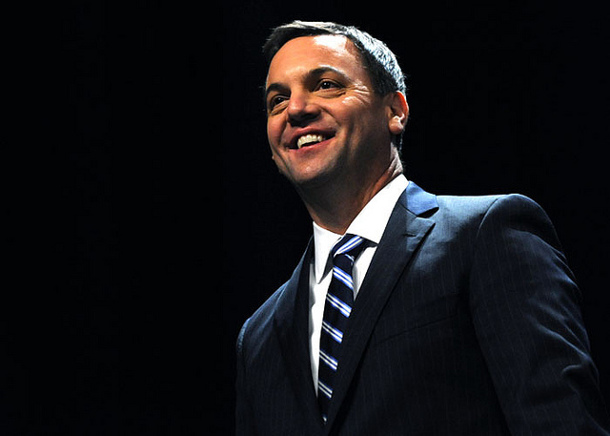"A vote 'against' someone or something is a vote in favour of nothing." -- Alice Funke, PunditsGuide.ca
Ontario goes to the polls on Thursday after a bitter, nasty campaign dominated increasingly by one topic -- strategic voting designed to defeat the party you hate the most rather than the one you actually support.
Strategic voting is a misnomer, however, because the results are consistently a big failure. But we can expect to see strategic voting promoted here in B.C.'s fall municipal elections and especially in next year's federal election.
In the 2011 federal contest, strategic voting was used to try and block Stephen Harper's Conservatives, and yet they won a majority government after the New Democrats and Liberals foolishly defeated them in Parliament, forcing an election.
Despite multiple websites like Catch 22 and Project Democracy which combined dire warnings about Harper's agenda of mayhem with directions on whether to vote Liberal or NDP in dozens of ridings, the effort was obviously a spectacular bust.
Nonetheless, the same flawed approach is being applied in an attempt to stop Ontario Conservative leader Tim Hudak from becoming premier by steering voters to either the governing Liberals under Kathleen Wynne or the NDP's Andrea Horwath, depending on which party appears to have the best chance in each riding.
Note this: The "Stop Hudak" campaign will become May 2015's "Stop Harper" effort, no matter how ineffectual.
Ironically, in this race it's some of Ontario's most left-wing activists publicly attacking the NDP and worrying that the Liberals will lose.
Feminist Judy Rebick, columnists Michelle Landsberg and Gerald Caplan and others denounced Horwath for defeating Wynne's budget while saying the Ontario NDP is too right-wing -- in the middle of the campaign when the only result of such criticism can be to damage the NDP vote.
Strategic voting helped the Tories
The problems with strategic voting are many and significant.
First and foremost, it requires the people who tell voters which party has the best chance of defeating the one being strategically voted against to have sophisticated, riding-level polling and research in dozens of ridings.
As Pundits' Guide's Alice Funke pointed out in 2011 about federal strategic voting websites:
"Their electoral analysis was incompetent and utterly wrong in most of the ridings where it could be said to have mattered -- leading to incorrect recommendations in many cases where it would have made a difference, and no recommendations in others that were overlooked.
Funke convincingly points out that strategic voting substantially helped, not hurt, the federal Conservatives, who must have been pinching themselves at their good luck to have such unintentional assistance.
"Project Democracy proved unable to rally sufficient voters to prevent 19 Conservative gains, completely missed the opportunity to even recommend strategic votes in 10 other cases where the Conservatives gained a seat, and got the recommendation right in just eight cases where Conservatives were actually defeated, leaving 33 targeted Conservative MPs in place," Funke wrote in her evisceration of the plan after the May 2011 election.
"The Conservatives were re-elected with a majority government. No wonder they loved Project Democracy."
Painfully true.
Taking away choice
Second, strategic voting demands that a huge number of voters not support their traditional party based on its values and policies and instead cast a ballot for a party they don't like, in order to stop one they despise.
Vancouver polling analyst Bryan Breguet suggested that in the 2011 federal election it would have taken as much as 60 per cent of Liberal and NDP voters to switch their choice in their riding to make strategic voting effective, something he called "completely unrealistic."
It should go without saying that strategic voting strongly promotes the development of a two-party system with few options for different ideological perspectives.
Political history shows that the New Democratic, Social Credit, Parti Quebecois, Reform, Green and many other parties came into existence and sometimes power because the traditional choice of Liberal or Conservative was unpalatable.
Lastly, voting is your democratic opportunity to make a decision based on your values by picking the candidate and party that can best represent you in elected office.
No one should squander their principles by voting for a party they don't like to defeat a party they hate while abandoning the party they truly support. ![]()
Read more: Politics
















Tyee Commenting Guidelines
Comments that violate guidelines risk being deleted, and violations may result in a temporary or permanent user ban. Maintain the spirit of good conversation to stay in the discussion.
*Please note The Tyee is not a forum for spreading misinformation about COVID-19, denying its existence or minimizing its risk to public health.
Do:
Do not: